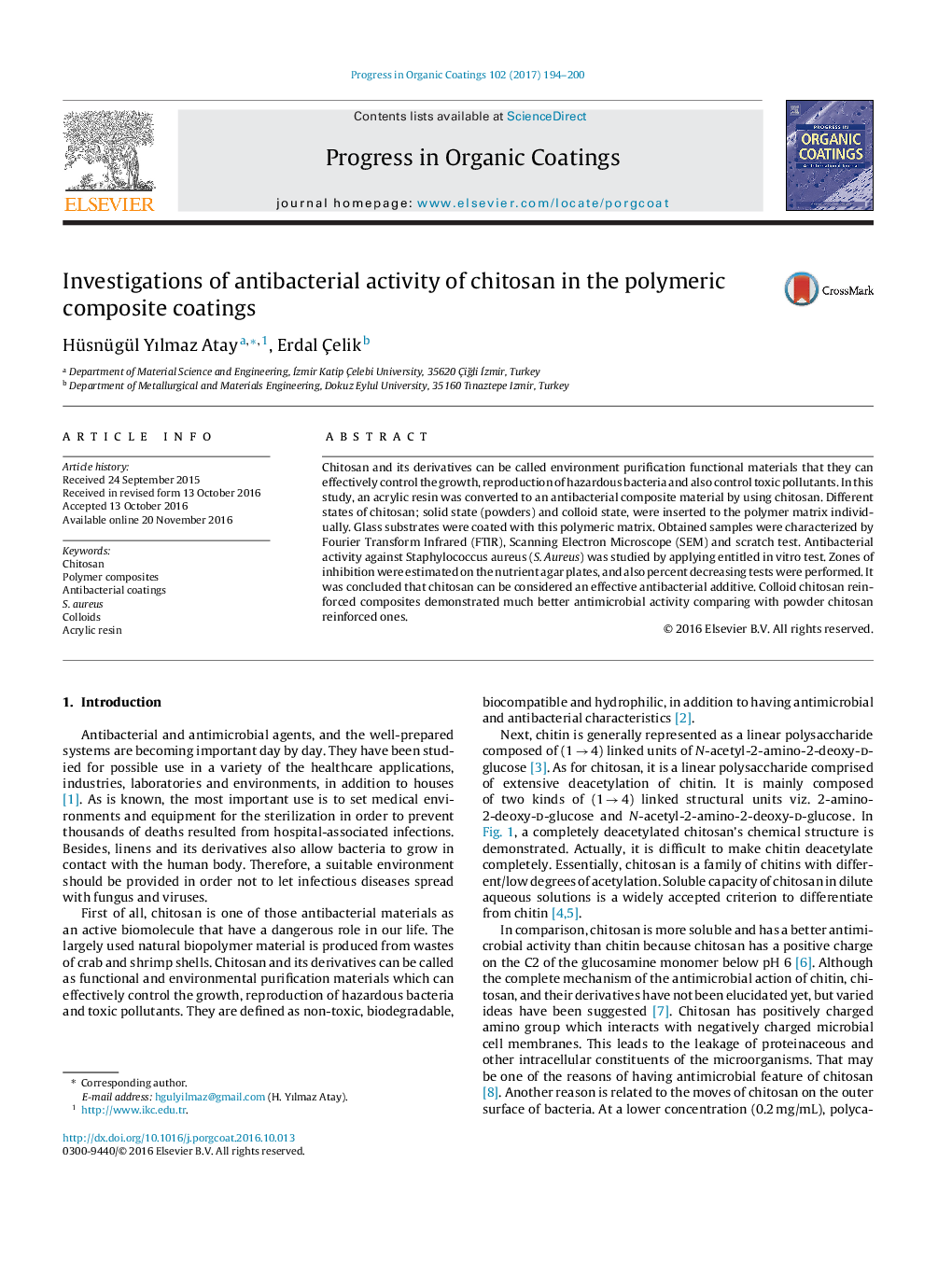| Article ID | Journal | Published Year | Pages | File Type |
|---|---|---|---|---|
| 4999377 | Progress in Organic Coatings | 2017 | 7 Pages |
Abstract
Chitosan and its derivatives can be called environment purification functional materials that they can effectively control the growth, reproduction of hazardous bacteria and also control toxic pollutants. In this study, an acrylic resin was converted to an antibacterial composite material by using chitosan. Different states of chitosan; solid state (powders) and colloid state, were inserted to the polymer matrix individually. Glass substrates were coated with this polymeric matrix. Obtained samples were characterized by Fourier Transform Infrared (FTIR), Scanning Electron Microscope (SEM) and scratch test. Antibacterial activity against Staphylococcus aureus (S. Aureus) was studied by applying entitled in vitro test. Zones of inhibition were estimated on the nutrient agar plates, and also percent decreasing tests were performed. It was concluded that chitosan can be considered an effective antibacterial additive. Colloid chitosan reinforced composites demonstrated much better antimicrobial activity comparing with powder chitosan reinforced ones.
Related Topics
Physical Sciences and Engineering
Chemical Engineering
Process Chemistry and Technology
Authors
Hüsnügül Yılmaz Atay, Erdal Ãelik,
